
How to maximize your marketing budget (whatever it is)
Check out our easy-to-understand guide to help you make the most of your marketing budget (regardless of how big it is).

Some personal news: I’ve recently become obsessed with houseplants.
Spending roughly 23 hours a day within the same four walls for the last — sigh — 13 months miiiiight have played some small role here. I have a newfound craving to infuse some life into my (increasingly claustrophobic) two-bedroom condo.
I can’t help it! I love the aesthetic of something green and thriving in the corner. I love the reward of seeing new growth sprout its shy little head. I love caring for something, and the extremely necessary routine it creates: Mist every morning. Humidifier in the afternoon. Water once a week. Fertilizer once a month. Plants are without exaggeration the only thing keeping me sane these days.
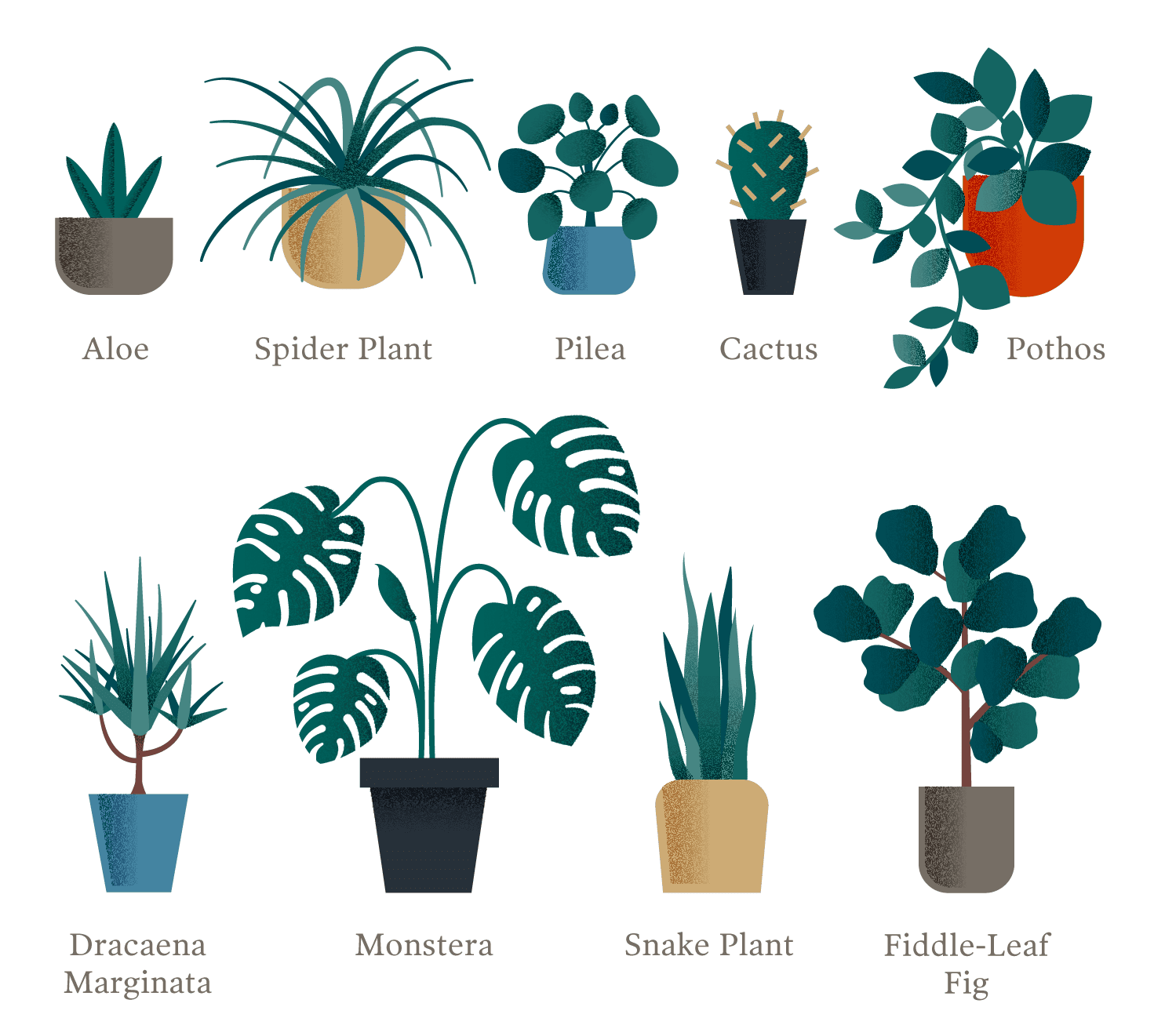
I’m up to 15 houseplants now, spread throughout various rooms of my home. May I tell you more about them? I’d love to, if you have a few hours. No? Okay, then I’ll get to the point.
The thing is, with all of these newfound beauties, I need a way to display them. They have quickly overtaken my bookcases, mantle, and countertops. Unfortunately, as a fairly new plant owner, I’m largely ignorant about the options available to me. I timidly google phrases like “er… plant holder.” No dice. I try “plant stand” which is closer but still not quite it. I toy with other keywords, scroll through Pinterest for inspiration, but nothing is helping. Eventually, I give up the search and resign myself to limited shelf space forever.
That is… until by sheer coincidence, an Instagram ad crosses my feed.
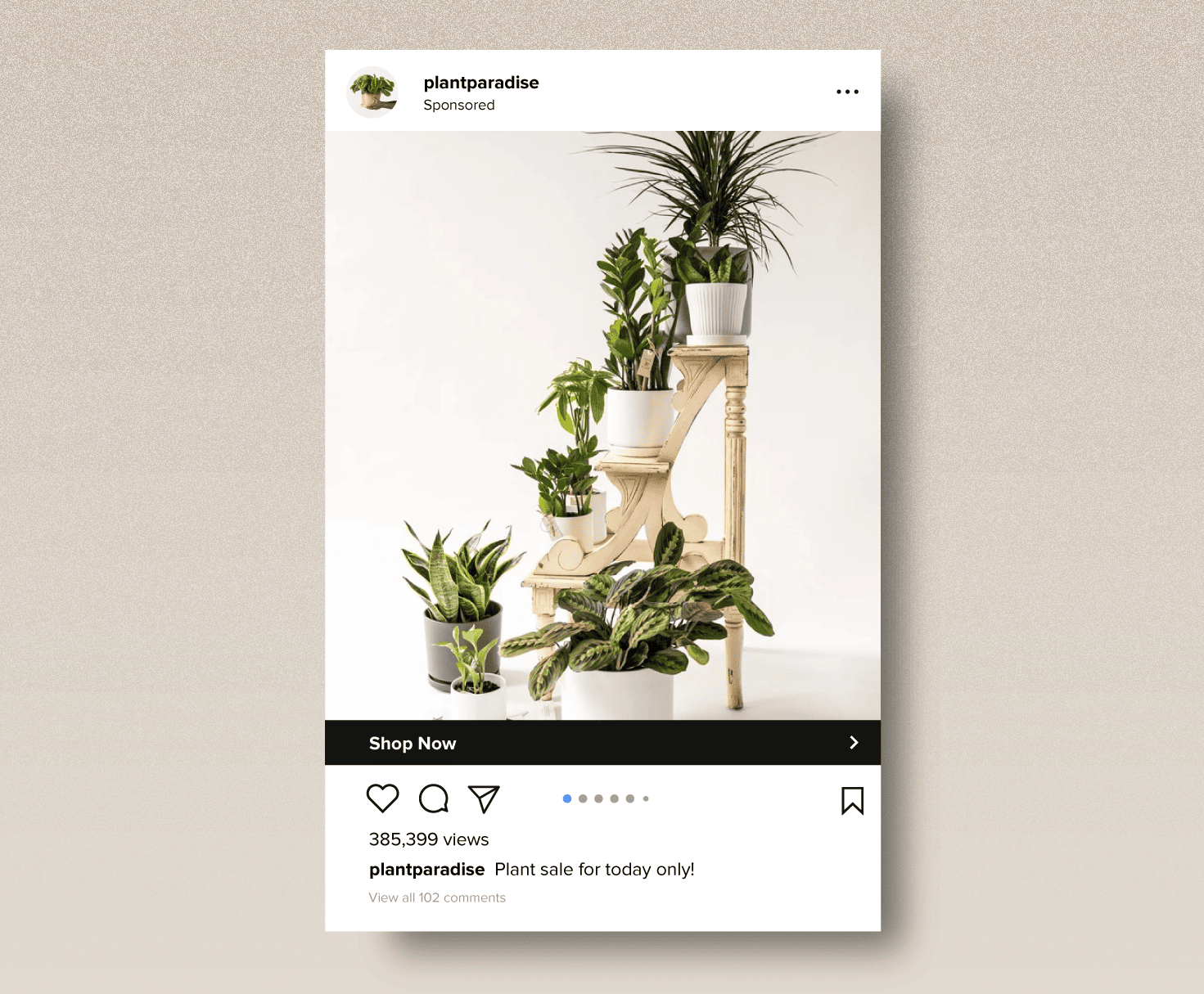
That stand! It’s the perfect size and shape. It has all the vintage charm of an antique. I love it. I want it. I need it.
Unfortunately, the ad isn’t for the stand… it’s for the plants. And (as we’ve already established) I probably don’t need any more plants.
(Here’s where this story becomes relevant, I promise.)
I suddenly find myself with a dilemma: This plant stand doesn’t exist, in a literal consumerist sense. It exists there… in this fleeting Instagram fever dream… but not in a way that I can feel and touch and experience and buy.
Why? Because it was probably custom-made for the company currently displaying it. Because it doesn’t fit the mold of something I could pick off the shelf of a nursery, or click through on Etsy. It was purpose-built, unique, and unlikely to show up in a Google search.
This particular quandary resonated with me — not just as a frustrated plant owner, but as a Strategist who works with closely with (similarly and understandably) frustrated business owners.
Only, they don’t come to Kinesis with frustrations about plant stands (although I’m sure they’d agree with me that it’s gorgeous, and unfair that I can’t have it). Instead, they come with frustrations about uniqueness.
Because here’s the unfortunate side-effect of being one of a kind: You’re amazing (look at you, you vintage, wooden, hand-painted, perfectly sized plant home, you), but you’re impossible to place in a category. It’s no wonder no one can find you among typical alternatives in your industry; you’re nothing like them.
So when I go looking for “plant holders” or “plant stands” (or, to bring this metaphor closer to home, “engineering firms” or “contract manufacturers” and the like), your company might not be the first on my radar.
Kinesis is no stranger to this, since we actually face a similar challenge. Once upon a time, we positioned ourselves as a smart alternative to traditional marketing. (Fun fact: when I started here in 2014, the headline of our website literally read “@#$% MARKETING.” How’s that for a first impression?) We firmly believed that marketing was broken, and we were out to fix it.
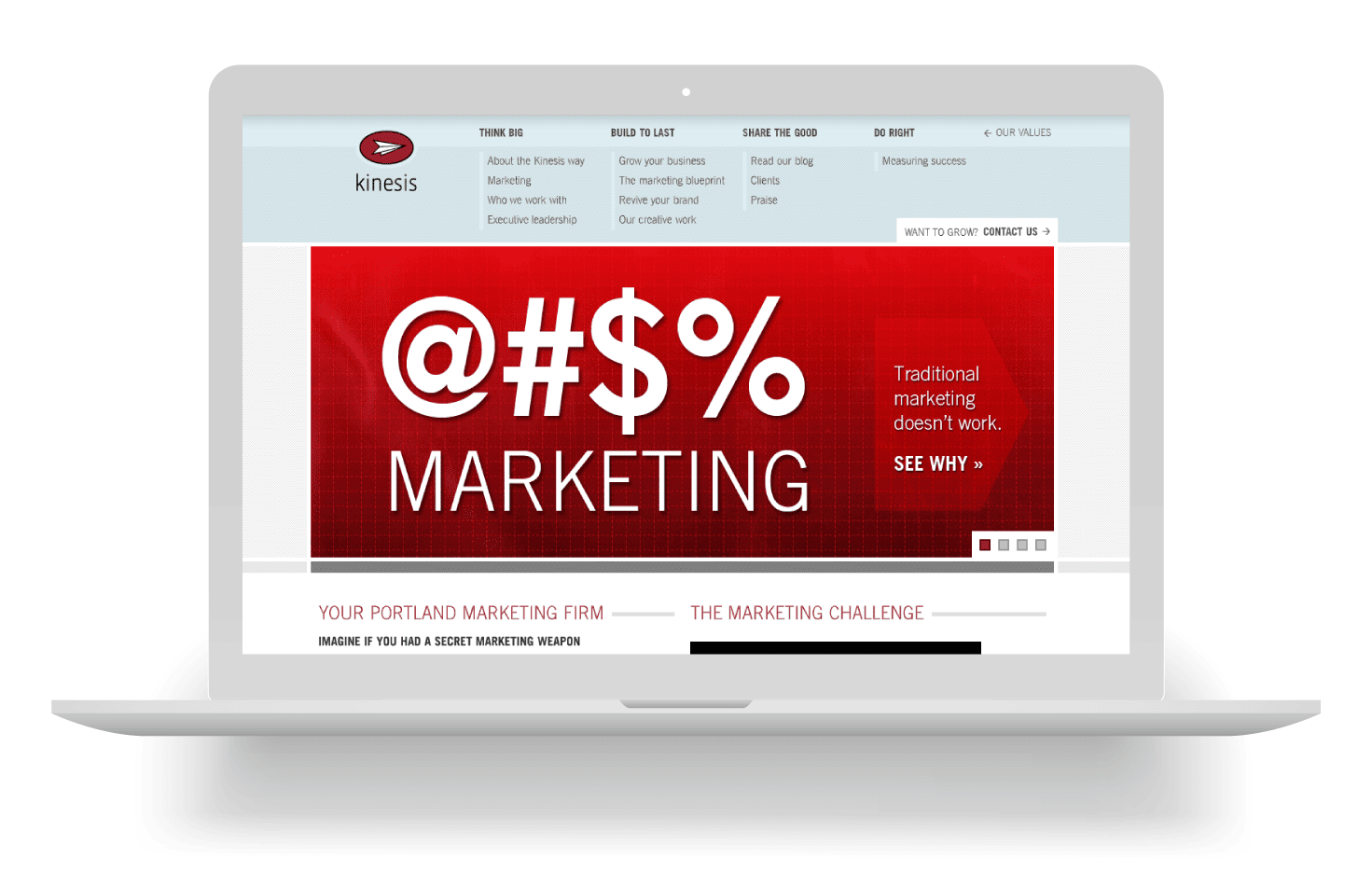
That’s still true… however, it turns out that marketing isn’t the whole story. At the end of the day, you can’t tackle a so-called ‘marketing’ problem like “we need more customers” without also addressing your sales process. You can’t reimagine your sales process without also engaging your people, and examining your product. And so on.
So, our work with clients spanned way beyond marketing... which meant we were a marketing firm, but also not exactly a marketing firm. Kinda like how an antique staircase repurposed for an Instagram photoshoot is a plant stand, but also not exactly a plant stand.
Before long, we Kinesians were putting an asterisk next to the word “marketing firm” every time we introduced ourselves (the same way I’m sure our clients once said things like “We’re a construction company… but not like that.” or “We’re a custom tilemaker… only different.”).
Because isn’t that the curse of remarkability, that in order to create something new, you then also bear the burden of educating the world about something they’ve never experienced before?
After a while, we went ahead and stopped using the word “marketing firm.” If you’re familiar with Kinesis, you know that last year we re-built our brand identity… and even went so far as to almost remove it from our vocabulary altogether.
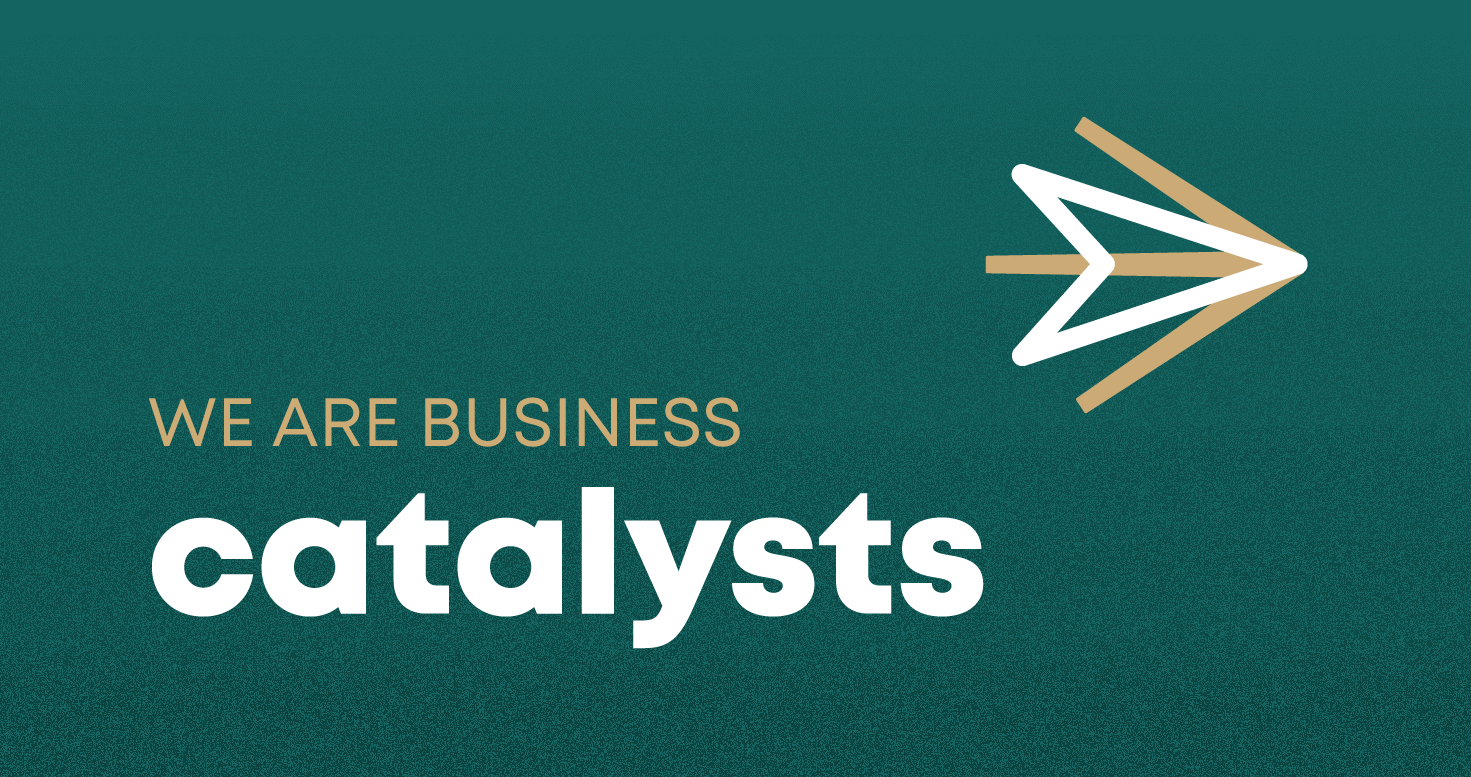
Why? Because at the end of the day, we’re not a marketing firm. Or an HR firm. Or a CEO coach. Or a design agency… Or a plant stand, or a plant holder.
And the fact that we are none of these things is our very strength. You can’t pick our services off a shelf or menu the same way (I’m sure) no one would confuse your business with that of your competitors. Which is to say, they shouldn’t. And that isn’t a bad thing.
After all, if I were the creator of a one-of-a-kind vintage staircase repurposed as a quirky plant display, I wouldn’t want to be lumped into mass-produced Overstock furniture either. I would want — in fact, even seek out — the type of person to stumble upon my designs and awe at them. Screenshot them. Exert effort into searching for more of them. That would mean I’d found a niche, and a meaningful one at that.
For our clients, that means getting clear on their remarkability and for whom they can add the most value — then building a strategy around reaching more of those people. It means removing themselves from crowded marketplaces and thereby making competition irrelevant.
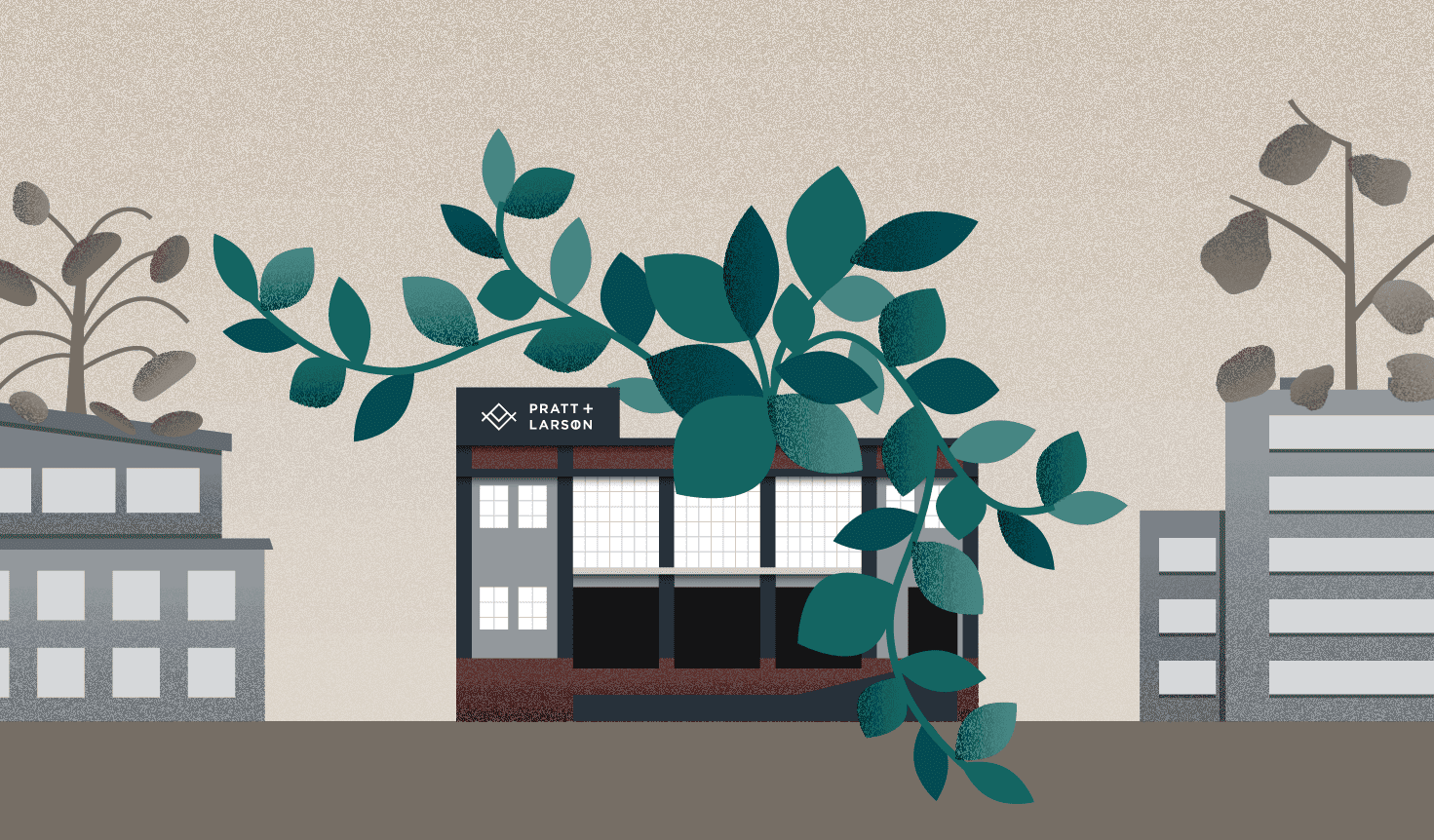
For Kinesis, it means training the world to think of us as more than just marketing. The Kinesis model extends to all corners of an organization, and unleashes potential for the business as a whole. So, instead of competing with marketing companies that have nothing to do with ours, we cater to the kind of leader who reflects on something abstract (like employee engagement, customer satisfaction, or brand equity) and says, “I want that.”
And rather than pointing them to a product catalog, we say, “Amazing. Let’s build it together.”
Because as we all know, remarkability isn’t born on a shelf. It’s born of uniqueness, spirit, energy, and effort toward creating something in collaboration. It’s a lot of work, to be sure. But the result is an army of brand ambassadors who would not only go to bat for you, they’d shout your story from the rooftops. Those who haven’t met you yet will see your work and go searching for you. Describe your awesomeness to others. (Hell, even write a blog post about it.)
That is, quite literally, the power of remarkability. What does yours look like?
P.S. If you are a carpenter with skills in antique-staircases-converted-to-decorative-plant-stands, call me. But if you’re a business owner trying to carve out a unique niche in a crowded marketplace, call Kinesis.
Get insights like this straight to your inbox.